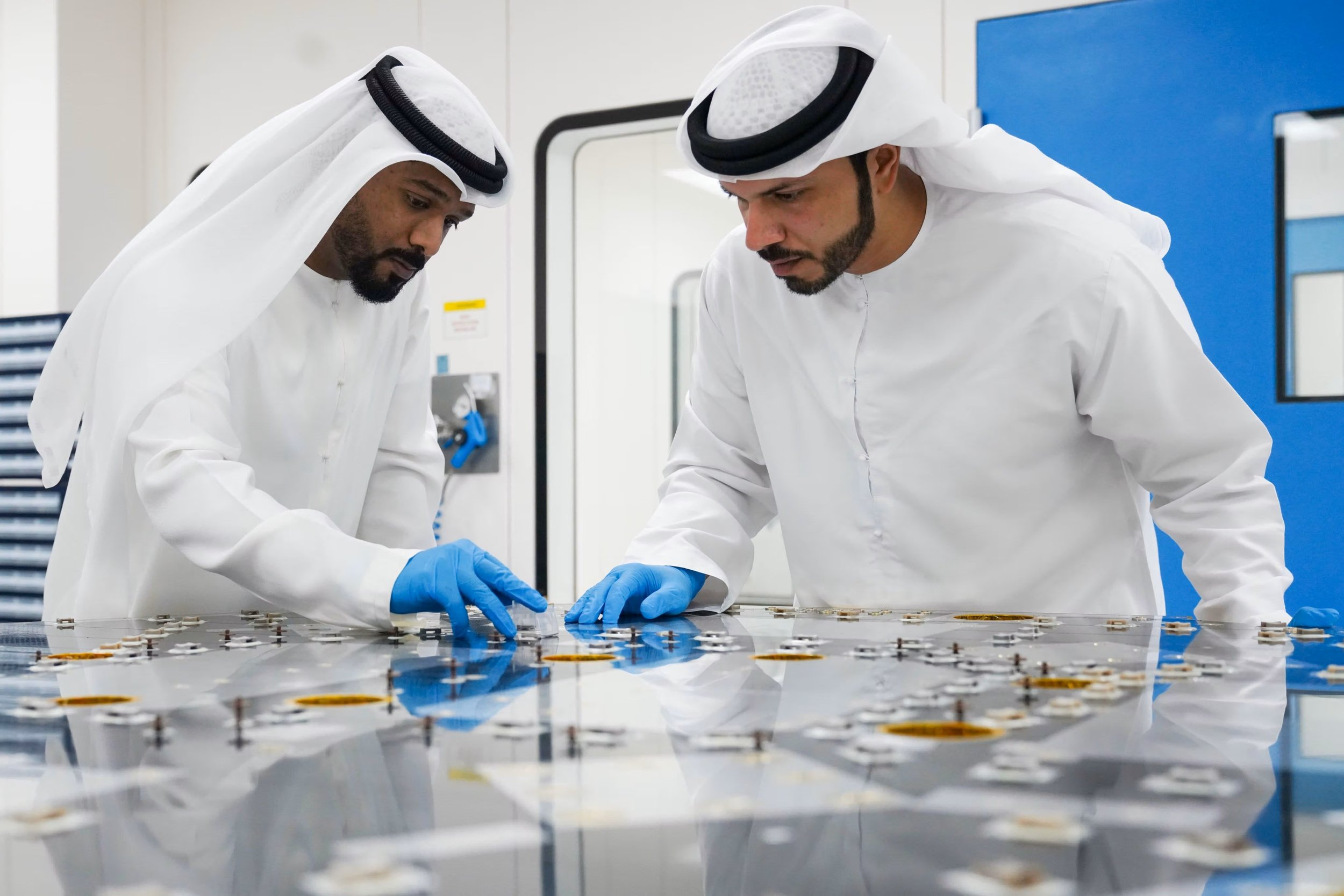
United Arab Emirates
"In the race for excellence, there is no finish line."
– Sheikh Mohammed bin Rashid Al Maktoum, Ruler of Dubai
A Global Gateway
Priority Sectors in the UAE:
The United Arab Emirates (UAE) has positioned itself as a regional leader in economic diversification, with a national agenda centered around innovation, sustainability, and post-oil growth. Under initiatives such as the UAE Vision 2031 and the “We the UAE 2031” strategy, the country aims to double its GDP and boost non-oil exports, while strengthening its role as a global hub for business, tourism, technology, and finance. Key sectors of focus include renewable energy, advanced manufacturing, logistics, financial services, space technology, AI and digital transformation, and healthcare. UAE’s focus is on innovation in all priority sectors with the aim of creating an innovation and advanced manufacturing ecosystem with indigenous capability and global reach. The country is attracting talent, expertise, investment, and innovators in the following sectors through incentives, partnerships, investment, and a business-friendly ecosystem. Massive public investments and a business-friendly regulatory framework, including 100% foreign ownership in most sectors, have helped attract international capital and talent
The UAE has also prioritized green growth, with flagship projects like Masdar City, major solar power installations (e.g., Noor Abu Dhabi and the Mohammed bin Rashid Al Maktoum Solar Park), and a national hydrogen strategy. The country’s industrial strategy “Operation 300bn” targets expanding the industrial sector’s GDP contribution to AED 300 billion by 2031. Education reform, SME development, and international trade partnerships also play key roles in ensuring long-term resilience and global integration.
In Dubai, diversification is driven by global connectivity and service-sector leadership. The emirate has evolved into a global center for finance, tourism, trade, and digital innovation, supported by infrastructure like Dubai International Airport (DXB), Jebel Ali Port, and Expo 2020 legacy developments such as District 2020. The Dubai Economic Agenda D33 aims to double the size of its economy in the next decade, emphasizing tech, creative industries, and green energy. In contrast, Abu Dhabi, the UAE capital, has taken a more industrial and strategic investment approach through its Economic Vision 2030. It focuses on advanced manufacturing, defense, biotech, agri-tech, and sustainable urban development (e.g., Masdar City). The Abu Dhabi Investment Office (ADIO) and Mubadala play pivotal roles in channeling investment into future-oriented sectors, making Abu Dhabi, dubbed the capital of capital, a leader in sovereign wealth and innovation-led industrial growth.
· Renewable Energy: The UAE is investing heavily in solar, wind, and clean hydrogen, led by initiatives like Masdar and the UAE Energy Strategy 2050. It aims to make clean energy 50% of the energy mix by 2050 and become a global leader in climate technology.
· Technology & Artificial Intelligence: With the UAE AI Strategy 2031, the country is integrating AI into key sectors like healthcare, education, and transportation, while encouraging R&D and startups in robotics, big data, and smart services.
· Space Industry: The UAE Space Agency and Mohammed bin Rashid Space Centre are advancing national capabilities, exemplified by the Mars Hope Probe and future missions aimed at building a knowledge-based economy and inspiring STEM innovation.
· Tourism & Hospitality: Tourism is a key driver of non-oil GDP, supported by major events (Expo 2020 Dubai), cultural attractions (Louvre Abu Dhabi), and high-end hospitality infrastructure. The goal is to attract 40+ million hotel guests annually by 2031.
· Logistics & Trade: As a global logistics hub, the UAE is enhancing its ports, free zones, and customs systems. Jebel Ali Port, Khalifa Port, and Dubai International Airport make it a strategic bridge between Asia, Europe, and Africa.
· Financial Services & Fintech: The UAE is expanding its financial sector with smart regulation and hubs like the DIFC and Abu Dhabi Global Market. Fintech, digital banking, and blockchain are central to its goal of becoming a global finance center.
· Advanced Manufacturing: Through the “Make it in the Emirates” campaign, the UAE is targeting high-tech manufacturing in aerospace, defense, semiconductors, and pharmaceuticals to reduce imports and create high-skilled jobs.
· Education & Human Capital: Education reform is focused on digital skills, coding, and innovation. The country seeks to nurture Emirati talent while attracting global experts to support a competitive, future-ready workforce.
· Healthcare & Life Sciences: The UAE is building a regional hub for medical innovation, biotech, and health tourism. Investment in genomics, telemedicine, and hospital infrastructure supports public health resilience and economic growth.
· Agri-tech and Food Security: The UAE’s National Food Security Strategy focuses on local production using agri-tech like vertical farming and hydroponics, aiming to mitigate climate-related risks and reduce import dependence.
· Creative Industries and Media: With initiatives like Dubai Design District and twofour54 in Abu Dhabi, the UAE is nurturing a creative economy in film, design, fashion, and digital media to support cultural and economic diversification.

“Further diversifying our economy is a key strategic focus of our future plans. It is therefore necessary to accelerate economic development efforts to continue building a leading global economy, to enhance our competitiveness and achieve the highest global rankings.”
- UAE President Sheikh Mohammed Bin Zayed Al Nahyan




